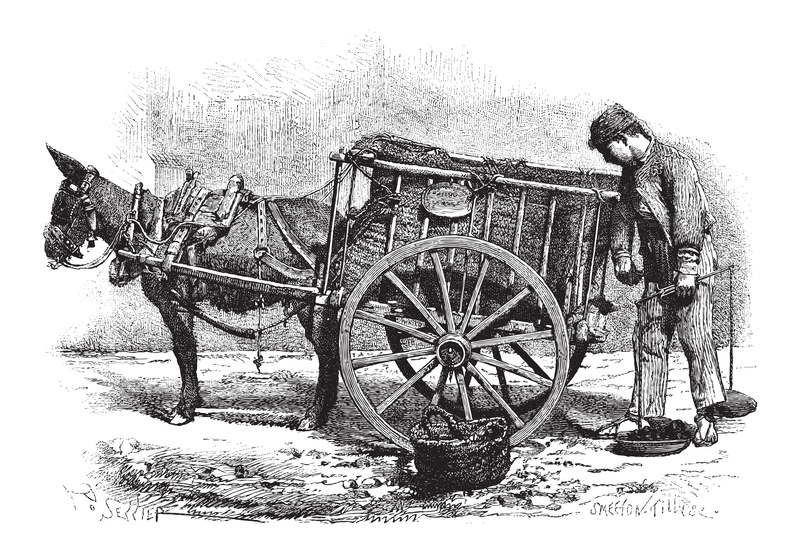Efficient Plastic to Fuel Techniques
Posted on 18/11/2024
Plastic waste has been a long-standing environmental issue, clogging oceans, landfills, and posing hazards to wildlife. One of the promising solutions to this problem is to convert waste plastics into fuel. This article delves into various efficient plastic-to-fuel techniques, their pros and cons, and provides actionable tips for better implementation.
Introduction to Plastic to Fuel Conversion
Plastic to fuel conversion is a process that aims to solve the dual problems of plastic waste and fuel scarcity. By converting waste plastic materials into valuable fuel, this technology offers a sustainable way to manage plastic waste while addressing energy needs.

Techniques for Plastic to Fuel Conversion
The following are some of the most efficient techniques used in converting plastic waste to fuel:
1. Pyrolysis
Pyrolysis is one of the most widely used techniques for plastic to fuel conversion. This process involves the thermal decomposition of plastic materials at high temperatures (generally between 350?C to 500?C) in the absence of oxygen. The resulting products include liquid oil, gaseous fuel, and char. The oil can be further refined into diesel, gasoline, and other products.
2. Gasification
Gasification involves the conversion of plastic waste into synthetic gas (syngas) by reacting it with a controlled amount of oxygen and steam at high temperatures (700?C to 1200?C). The syngas can then be converted into liquid fuels through various processes like Fischer-Tropsch synthesis.
3. Catalytic Depolymerization
This technique uses catalysts to break the long polymer chains in plastics into shorter hydrocarbon chains at relatively lower temperatures compared to pyrolysis. Catalytic depolymerization can result in higher yields of specific products such as diesel and gasoline.
4. Hydrothermal Liquefaction
Hydrothermal liquefaction involves converting plastic materials into liquid fuel using water at high temperatures and pressures. This process mimics the natural geological conditions that produce fossil fuels but accelerates it to a commercially viable timeframe.
Pros and Cons
Like any technology, plastic to fuel conversion techniques have their advantages and disadvantages:
Pros
- Waste Reduction: Converts problematic plastic waste into valuable fuel, reducing landfill and ocean pollution.
- Energy Recovery: Provides an alternative source of energy and reduces dependency on traditional fossil fuels.
- Economic Benefits: Potential to create new industries and job opportunities.
Cons
- High Initial Costs: Setting up plants and obtaining technology can be capital intensive.
- Technological Limitation: Some techniques require precise conditions to be efficient and cost-effective.
- Environmental Impact: If not managed properly, these processes might produce greenhouse gases and other pollutants.
Tips for Effective Implementation
- Choose the Right Technology: Evaluate the plastic waste composition and select a technology that offers the highest yield and efficiency.
- Invest in Research and Development: Continuous improvement and innovation can make these processes more efficient and cost-effective.
- Environmental Management: Implement strict regulations to manage emissions and by-products to minimize environmental impact.
- Community Engagement: Educate the community about the benefits of plastic to fuel conversion to gain social acceptance and support.

Key Takeaways
- Plastic to fuel conversion offers a sustainable solution to manage plastic waste and energy needs.
- Techniques such as Pyrolysis, Gasification, Catalytic Depolymerization, and Hydrothermal Liquefaction are effective but come with their pros and cons.
- Proper implementation, continuous research, and community engagement are crucial for the success of these technologies.
Conclusion
Efficient plastic-to-fuel techniques provide a viable solution to address the growing plastic waste problem and energy demands. By strategically choosing the right technology and investing in R&D, these techniques can be optimized for better efficiency and reduced environmental impact. However, it is essential to mitigate the associated risks and manage the environmental impact effectively. As we advance, a community-focused approach and stringent regulations can ensure the sustainable and successful implementation of plastic-to-fuel conversion technologies.
Latest Posts
Recycling for Environment Health
Start Your Plastic-Free Kitchen Journey
Recycling Polystyrene for a Greener Earth






